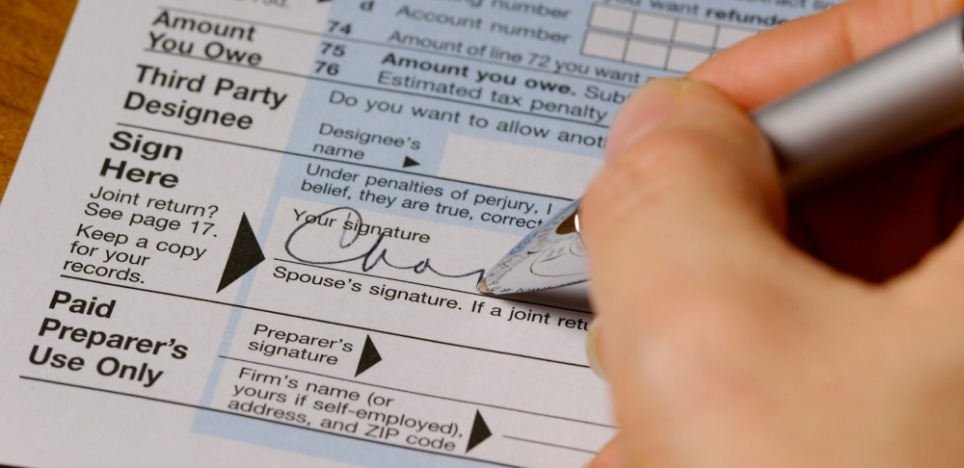(Editor's Note: This ritual was prompted by a story that Diana Butler Bass shared during a Practicing Democracy Project convening at the Fetzer Institute. She described how her family made April 15, the date when Americans need to file their taxes, a day of gratitude for all the services they receive from the government. When her daughter went to college, Diana got an email on April 15. "Nobody celebrates Tax Day here," her daughter reported. We think it's time to change that!)
PREPARE for your Tax Day ritual. Gather information on what your taxes pay for. You might make a sheet for federal taxes, state taxes, and local taxes. Search the Internet for "federal spending pie charts" to find images that show spending by general categories. Search "what taxes pay for" for more information. The website GovernmentIsGood.com has an article, A Day in Your Life, that takes you through a typical day, mentioning the government benefits and services available to you.
GATHER YOUR TAX FORMS AND PAYMENTS. Individuals can set aside a special time for the ritual before mailing or submitting your taxes. (If a professional has submitted your taxes electronically, just gather your copies of the forms.) Families can gather together with the household's taxes forms and checks.
SIT IN SILENCE WITH THE NUMBERS for a few minutes. Let any feelings you have about the money you are sending to the government arise. Do you feel satisfied, angry, frustrated, confused? Don't judge your emotions. Just be with them.
EXPRESS YOUR GRATITUDE. On a piece of paper, make a list of services and benefits that governments (federal, state, local) provide for which you are grateful. For example, public schools, national and state parks, social security, Medicare and Medicaid, highways, the Centers for Disease Control, water and food inspections, sewage treatment, fire departments, etc.
Have family members each share their lists, starting with "I am grateful my taxes pay for . . . " If you are doing this alone, read your list out loud since spoken lists have more impact.
EXPRESS YOUR SORROW. There are always going to be some things that you wish your taxes did not pay for. Write these on a piece of paper. For example, military weapons such as drones, payments to privately owned detention centers housing immigrants, tear gas for local police departments, gifts of arms to other countries, the space-based infrared surveillance program, "pork-barrel projects" that benefit only certain local communities, some research projects.
Share your lists, starting with "I am sorry that my taxes pay for . . . "
SIGN YOUR TAX CHECKS. In the memo part of the check, add a personal note to the government. It could be "Thank you" or "Please do better things with my money."
SIT IN SILENCE WITH YOUR PAYMENTS for a few minutes. Notice if your emotions around paying your taxes have shifted as a result of making your lists.
SAY A PRAYER.
Holy One, you are my Sustainer,
but I know that I also benefit every day
from the services provided by government.
Help me to remember with gratitude all the
ways my government's laws, programs, and
workers provide care and blessings to me
and my family and friends.
Give me the courage to make my concerns
about government spending known to my
representatives who vote on budget priorities.
As I pay my taxes today,
may I remember that I am not alone
but am part of a larger community of
taxpayers. May I be grateful to them
for their contributions to the common good.
Amen.
MAIL YOUR TAXES. As a last step in the ritual, go to the mailbox or post office (or the online equivalent), and pay your taxes. As you do so, repeat the affirmation: "We are all in this together."
